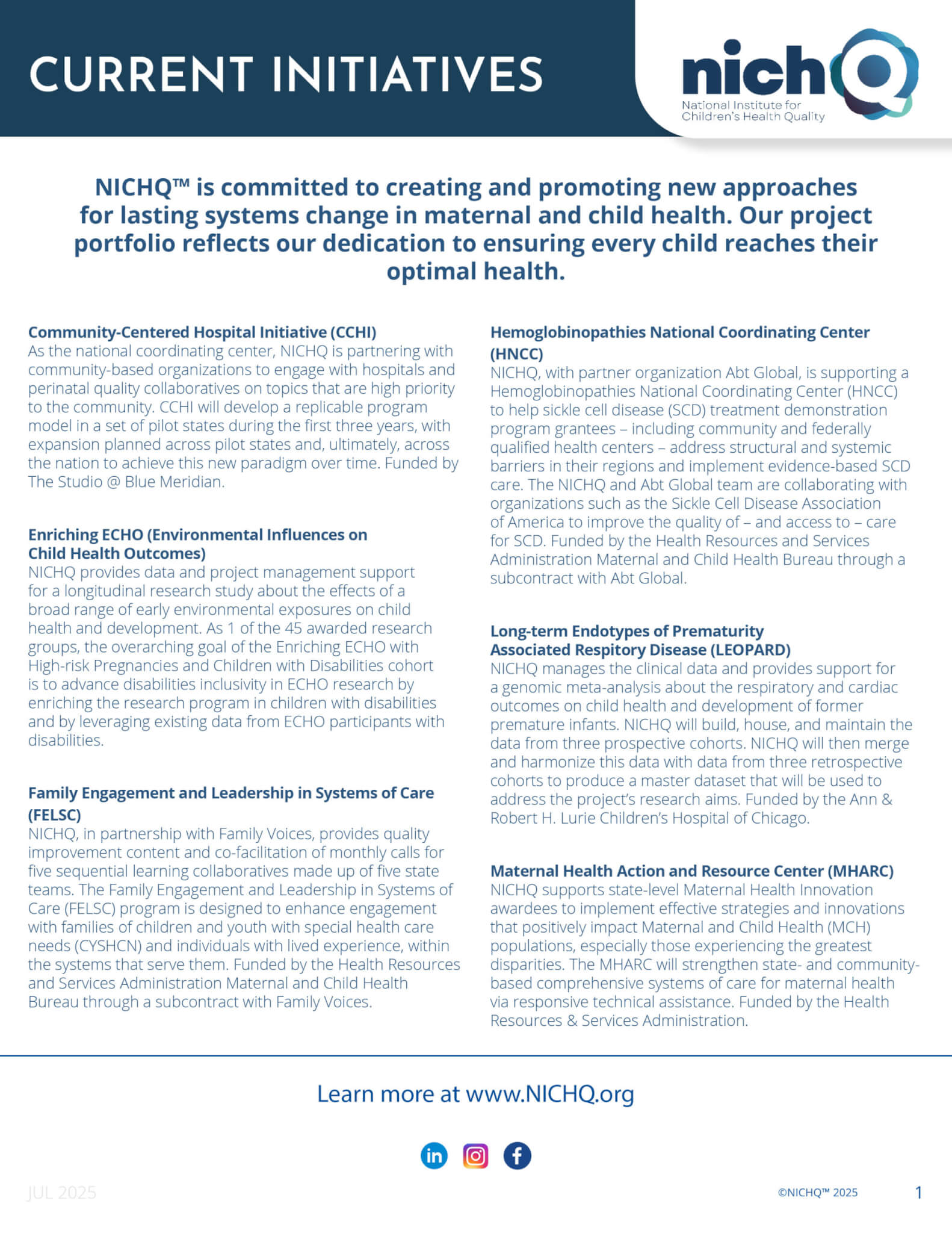Enriching ECHO (Environmental Influences on Child Health Outcomes) cohorts with High-risk Pregnancies and Children with Disabilities
The goal of the ECHO Program is to understand the effects of a broad range of early environmental influences on child health and development. NICHQ supports data collection and clinical research management for three clinical sites directly enrolling participants into the ECHO study.

Enhancing disability research in the ECHO program
ECHO aims to enhance the health of children and adolescents through research to inform health care practices, programs, and policies. By exploring five broad areas of health (pre and perinatal, respiratory, obesity, neurodevelopmental, and positive health) ECHO research can comprehensively assess factors affecting child health and how to enhance outcomes. The Enriching ECHO with Disabilities cohort aims to advance disability inclusivity in ECHO research.
Who
NICHQ and partners at Hackensack Meridian Health, Northwestern University, Lurie Children’s Hospital, and the Cerebral Palsy Foundation
Our Role
Supporting participant remote survey administration among three clinical sites and clinical research management
Funder
National Institutes of Health
Project Impact
External Resources
State Perinatal Quality Collaboratives
List of PQCs funded by the Center for Disease Control and Prevention (CDC)
The Power of PQCs
Video showing the impact that PQCs have on the communities they serve. Produced by the NNPQC.
PQCs in the News
Articles in news outlets covering state PQCs, their activities, and the people that work in the collaboratives.
Patient Safety Bundles
From the Alliance for Innovation on Maternal Health. PSBs are collections of evidence-informed best practices that address clinically specific conditions in pregnant and postpartum people. The NNPQC helps provide TA and support to PQCs in adopting the core AIM Perinatal Mental Health Bundle.
Perinatal Quality Collaboratives
The CDC’s landing page for PQCs, including helpful infographics, videos, and links to help explain what PQCs are, how they work, and stories, learnings, and publications that have come out of the state PQCs.
Meet Our Team

Meera Menon, PhD
Director of Research and Evaluation

Eliza Williamson
Associate Project Director

Lauren Friedman, PhD, MPH
Senior Analyst

Nicole Canchucaja, MPH
Analyst

Martin Gamez
Research Assistant

Melanie Campos
Research Assistant

